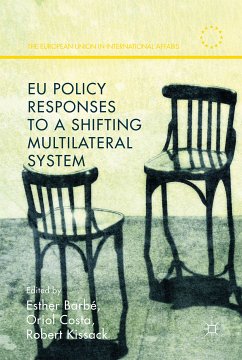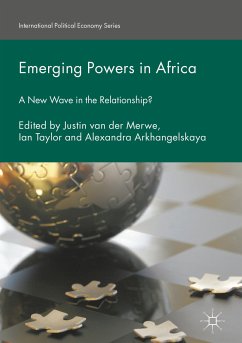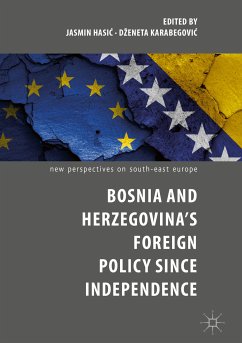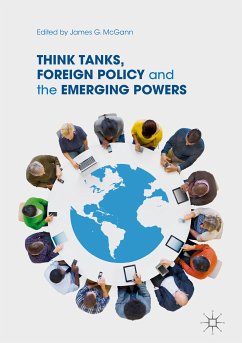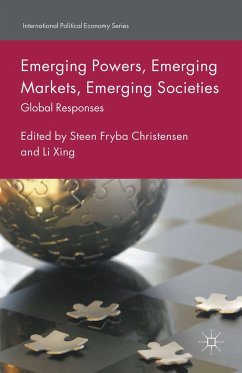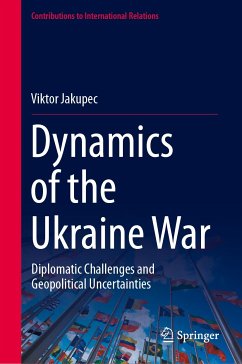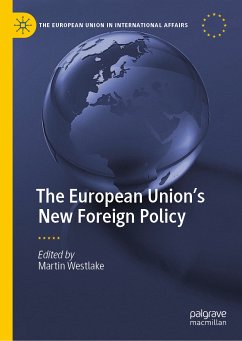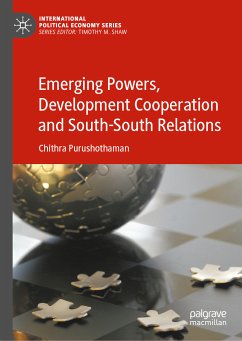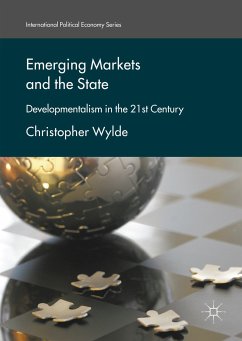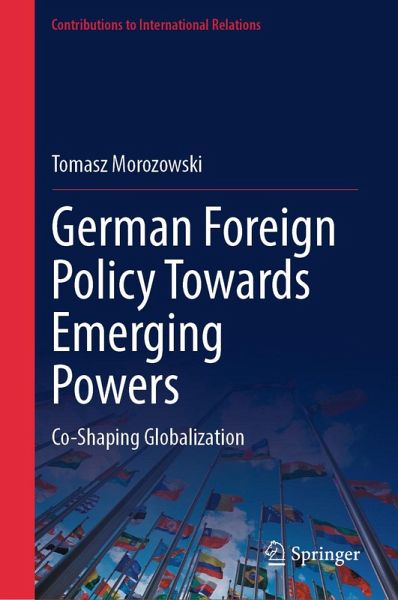
German Foreign Policy Towards Emerging Powers (eBook, PDF)
Co-Shaping Globalization
Versandkostenfrei!
Sofort per Download lieferbar
112,95 €
inkl. MwSt.
Weitere Ausgaben:

PAYBACK Punkte
56 °P sammeln!
This book examines the complex process of German foreign policy adaptation to a shifting global landscape, especially to the rise of new powers. Addressing a scholarly audience, the book sheds light on the evolution of Germany's post-reunification international role beyond the Euro-Atlantic structure.Grounded within the theoretical framework of neoclassical realism, the book analyzes the inner workings of Germany's global policy formation. It scrutinizes the state's relations with rising and emerging powers, including China, Brazil, India, South Africa, Mexico, Vietnam, Indonesia, Nigeria, Sau...
This book examines the complex process of German foreign policy adaptation to a shifting global landscape, especially to the rise of new powers. Addressing a scholarly audience, the book sheds light on the evolution of Germany's post-reunification international role beyond the Euro-Atlantic structure.
Grounded within the theoretical framework of neoclassical realism, the book analyzes the inner workings of Germany's global policy formation. It scrutinizes the state's relations with rising and emerging powers, including China, Brazil, India, South Africa, Mexico, Vietnam, Indonesia, Nigeria, Saudi Arabia, and the United Arab Emirates, exploring the details of Berlin's approach. The book presents the motives, goals, instruments, and future prospects of Germany's foreign policy regarding these states. It further explores the dynamics of Germany's civilian and economic power, while addressing the growing call for increased responsibility within the European Union as well as in global politics.
Readers will gain insight into the foundations, tools, and effectiveness of Germany's foreign policy, providing a quintessential case study of how a European state navigates the challenges of a rapidly changing global landscape. This makes the book a must-read for researchers specializing in German studies as well as for scholars of international relations and foreign policy.
Grounded within the theoretical framework of neoclassical realism, the book analyzes the inner workings of Germany's global policy formation. It scrutinizes the state's relations with rising and emerging powers, including China, Brazil, India, South Africa, Mexico, Vietnam, Indonesia, Nigeria, Saudi Arabia, and the United Arab Emirates, exploring the details of Berlin's approach. The book presents the motives, goals, instruments, and future prospects of Germany's foreign policy regarding these states. It further explores the dynamics of Germany's civilian and economic power, while addressing the growing call for increased responsibility within the European Union as well as in global politics.
Readers will gain insight into the foundations, tools, and effectiveness of Germany's foreign policy, providing a quintessential case study of how a European state navigates the challenges of a rapidly changing global landscape. This makes the book a must-read for researchers specializing in German studies as well as for scholars of international relations and foreign policy.
Dieser Download kann aus rechtlichen Gründen nur mit Rechnungsadresse in A, B, BG, CY, CZ, D, DK, EW, E, FIN, F, GR, HR, H, IRL, I, LT, L, LR, M, NL, PL, P, R, S, SLO, SK ausgeliefert werden.



